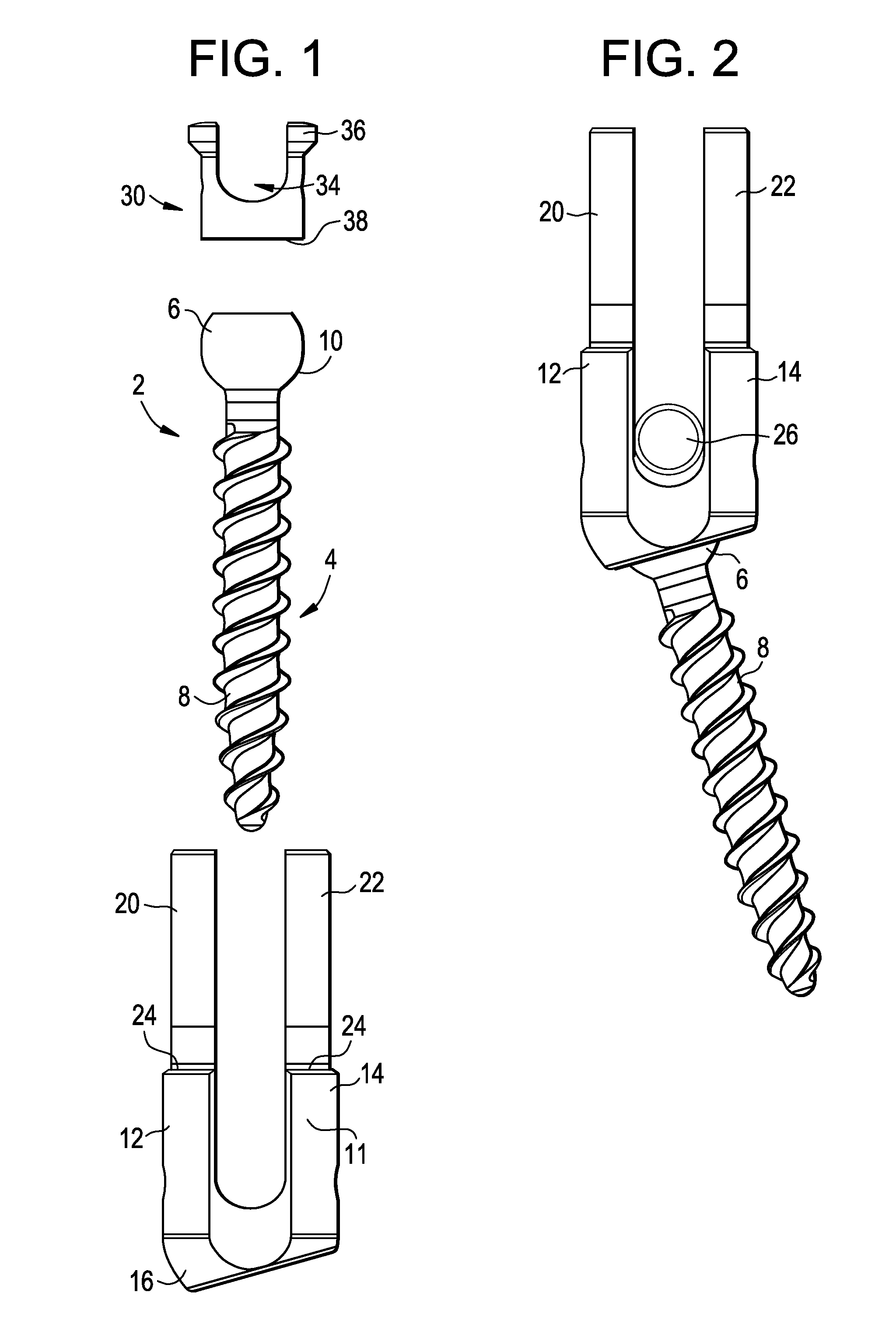Methods for correction of spinal deformities
- Summary
- Abstract
- Description
- Claims
- Application Information
AI Technical Summary
Benefits of technology
Problems solved by technology
Method used
Image
Examples
Embodiment Construction
[0063]Referring to the drawings, FIGS. 1 and 2 show a fixation screw assembly 2 which can be used in the technique which is provided by the invention. The assembly comprises a fixation screw 4 which has a head 6 and a threaded shaft 8. The head 6 has a bearing surface 10 which forms part of a sphere. The head 6 has a socket formed in it which can receive the end of a driver tool to enable torsional forces to be applied to the screw to drive it into a bore in a patient's bone. It will often be preferred for the socket to have the shape of a regular polygonal, for example square or hexagonal. Other suitable sockets can be star shaped. The configuration of the thread on the shaft 8 will be selected according to the nature of the bone into which the screw assembly is to be fixed. The factors which affect the design of bone screws are well understood in the literature.
[0064]The assembly includes a channel 11 which comprises a pair of parallel arms 12, 14 and a base 16 which extends betwe...
PUM
 Login to View More
Login to View More Abstract
Description
Claims
Application Information
 Login to View More
Login to View More - R&D
- Intellectual Property
- Life Sciences
- Materials
- Tech Scout
- Unparalleled Data Quality
- Higher Quality Content
- 60% Fewer Hallucinations
Browse by: Latest US Patents, China's latest patents, Technical Efficacy Thesaurus, Application Domain, Technology Topic, Popular Technical Reports.
© 2025 PatSnap. All rights reserved.Legal|Privacy policy|Modern Slavery Act Transparency Statement|Sitemap|About US| Contact US: help@patsnap.com



